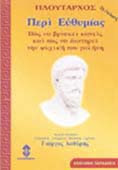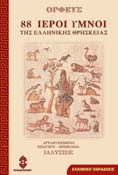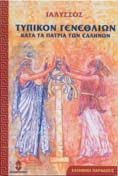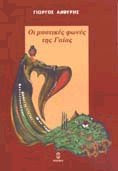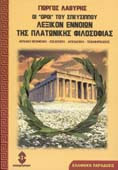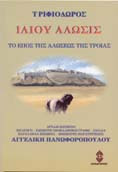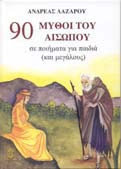16 Νοε 2008
ΤΟ ΤΡΑΓΟΥΔΙ ΤΟΥ ΘΗΣΕΑ * THESEUS' SONG
ΤΟ ΤΡΑΓΟΥΔΙ ΤΟΥ ΘΗΣΕΑ * THESEUS' SONG
Ο Ανδρειωμένος.
Ερμηνεία: Μαίρη Δαλάκου
Στίχοι: Δημήτρης Χριστοδούλου
Μουσική: Γιάννης Μαρκόπουλος
Από το χορόδραμα με τίτλο: «Θησέας»
Έχει αντρειά όποιος πονά
τα βάσανα τού κόσμου.
Κυπαρισσιού έχει θωριά,
τη μυρωδιά του δυόσμου.
Όπου τον εύρει το κακό,
με αντρειά χτυπάει!
Χτυπάει να φύγει το κακό,
μα κάκια δεν κρατάει!
Θησέως τὸ μὲν πατρῷον γένος εἰς Ἐρεχθέα καὶ τοὺς πρώτους αὐτόχθονας ἀνήκει, τῷ δὲ μητρῴῳ Πελοπίδης ἦν. Πέλοψ γὰρ οὐ χρημάτων πλήθει μᾶλλον ἢ παίδων μέγιστον ἴσχυσε τῶν ἐν Πελοποννήσῳ βασιλέων, πολλὰς μὲν ἐκδόμενος θυγατέρας τοῖς ἀρίστοις, πολλοὺς δὲ ταῖς πόλεσιν υἱοὺς ἐγκατασπείρας ἄρχοντας· ὧν εἷς γενόμενος Πιτθεύς, ὁ Θησέως πάππος, πόλιν μὲν οὐ μεγάλην τὴν Τροιζηνίων ᾤκισε, δόξαν δὲ μάλιστα πάντων ὡς ἀνὴρ λόγιος ἐν τοῖς τότε καὶ σοφώτατος ἔσχεν. ἦν δὲ τῆς σοφίας ἐκείνης τοιαύτη τις, ὡς ἔοικεν, ἰδέα καὶ δύναμις, οἵᾳ χρησάμενος Ἡσίοδος εὐδοκίμει μάλιστα περὶ τὰς ἐν τοῖς Ἔργοις γνωμολογίας. καὶ μίαν γε τούτων ἐκείνην λέγουσι Πιτθέως εἶναι,
μισθὸς δ᾽ ἀνδρὶ φίλῳ εἰρημένος ἄρκιος ἔστω.
τοῦτο μὲν οὖν καὶ Ἀριστοτέλης ὁ φιλόσοφος εἴρηκεν, ὁ δ᾽ Εὐριπίδης, τὸν Ἱππόλυτον ἁγνοῦ Πιτθέως παίδευμα προσειπών, ἐμφαίνει τὴν περὶ τὸν Πιτθέα δόξαν.
Δείτε Πλουτάρχου, Βίος Θησέως: http://remacle.org/bloodwolf/historiens/Plutarque/thesee.htm
The lineage of Theseus, by his father's side, ascends as high as to Erectheus and the first inhabitants of Attica. By his mother's side he was descended of Pelops. For Pelops was the most powerful of all the kings of Peloponnesus, not so much by the greatness of his riches as the multitude of his children, having married many daughters to chief men, and put many sons in places of command in the towns round about him. One of whom named Pittheus, grandfather to Theseus, was governor of the small city of the Troezenians and had the repute of a man of the greatest knowledge and wisdom of his time; which then, it seems, consisted chiefly in grave maxims, such as the poet Hesiod got his great fame by, in his book of Works and Days. And, indeed, among these is one that they ascribe to Pittheus, "Unto a friend suffice a stipulated price;" which, also, Aristotle mentions. And Euripides, by calling Hippolytus "scholar of the holy Pittheus," shows the opinion that the world had of him.
See Theseus, by Plutarch: http://classics.mit.edu/Plutarch/thes...





